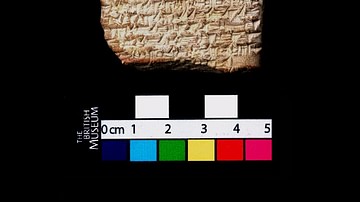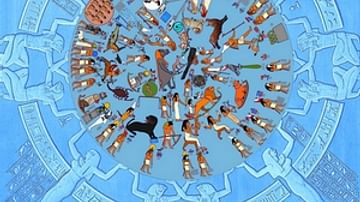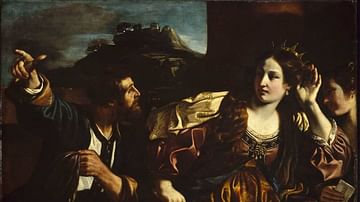Search
Did you mean: Orosius?
Search Results

Definition
Hanging Gardens of Babylon
The Hanging Gardens of Babylon were the fabled gardens which beautified the capital of the Neo-Babylonian Empire, built by its greatest king Nebuchadnezzar II (r. 605-562 BCE). One of the Seven Wonders of the Ancient World, they are the only...

Definition
Eridu - The Divine Birthplace of Kingship and Order
Eridu (present-day Abu Shahrein, Iraq) was considered the first city in the world by the ancient Sumerians and is among the most ancient of the ruins from Mesopotamia. Founded circa 5400 BCE, Eridu was thought to have been created by the...

Article
The Myth of Adapa
The Myth of Adapa (also known as Adapa and the Food of Life) is the Mesopotamian story of the Fall of Man in that it explains why human beings are mortal. The god of wisdom, Ea, creates the first man, Adapa, and endows him with great intelligence...

Definition
Cyrus the Great
Cyrus II (d. 530 BCE), also known as Cyrus the Great, was the fourth king of Anshan and the first king of the Achaemenid Empire. Cyrus led several military campaigns against the most powerful kingdoms of the time, including Media, Lydia...

Definition
Hellenistic Astrology
Hellenistic astrology encompassed various forms of divination in Greece and the Mediterranean, all linked to the observation of astronomical phenomena. Hellenistic astrology was based on the belief that the stars and planets could either...

Definition
Western Astrology
Western astrology refers to a form of divination based on the motion of astronomical objects such as stars or planets. The belief that astronomical objects are divine or influence events on Earth is found in many cultures, but the practices...

Article
Sammu-Ramat and Semiramis: The Inspiration and the Myth
Sammu-Ramat (r. 811-806 BCE) was the queen regent of the Assyrian Empire who held the throne for her young son Adad Nirari III (r. 811-783 BCE) until he reached maturity. She is also known as Shammuramat, Sammuramat, and, most notably, as...